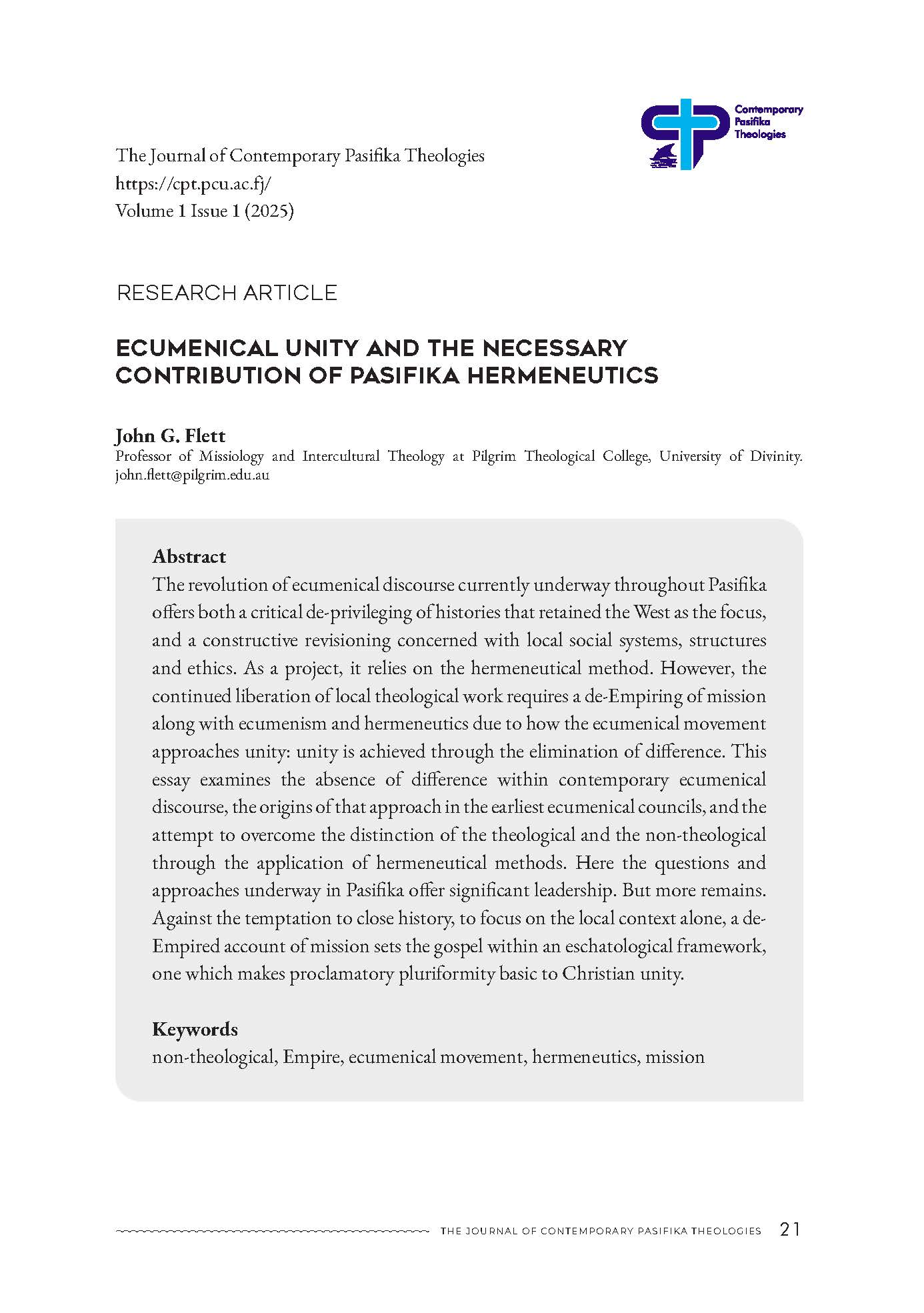Ecumenical Unity and the Necessary Contribution of Pasifika Hermeneutics
DOI:
https://doi.org/10.82025/cpt.v1i1.486Keywords:
non-theological, Empire, ecumenical movement, hermeneutics, missionAbstract
The revolution of ecumenical discourse currently underway throughout Pasifika offers both a critical de-privileging of histories that retained the West as the focus, and a constructive revisioning concerned with local social systems, structures and ethics. As a project, it relies on the hermeneutical method. However, the continued liberation of local theological work requires a de-Empiring of mission along with ecumenism and hermeneutics due to how the ecumenical movement approaches unity: unity is achieved through the elimination of difference. This essay examines the absence of difference within contemporary ecumenical discourse, the origins of that approach in the earliest ecumenical councils, and the attempt to overcome the distinction of the theological and the non-theological through the application of hermeneutical methods. Here the questions and approaches underway in Pasifika offer significant leadership. But more remains. Against the temptation to close history, to focus on the local context alone, a de-Empired account of mission sets the gospel within an eschatological framework, one which makes proclamatory pluriformity basic to Christian unity.

Downloads
Published
How to Cite
Issue
Section
License

This work is licensed under a Creative Commons Attribution-NonCommercial 4.0 International License.
